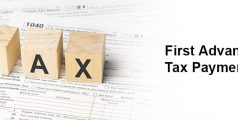
Fixed Deposit Tax Deduction Available under Section 80C of the Income Tax Act
Posted on Thursday, February 6th, 2025 | By IndusInd Bank
The Section 80C of the Income Tax Act offers a major tax deduction, which you can avail by investing in/opting for various financial instruments. One of these is a tax-saving fixed deposit (FD). It is a particularly ideal option if you want the safety of your capital and steady returns while also enjoying tax benefits.
This article looks at the tax-saving benefits of a fixed deposit under 80C, taxation on FD interest, and its other benefits. Keep reading to know more.
Understanding Fixed Deposit Tax Deductions Under Section 80C
- Fixed deposits that fall under the 5-year tax-saving FD scheme are eligible for tax deductions under Section 80C of the Income Tax Act.
- Investors can claim deductions of up to ₹1.5 lakh in a financial year on the amount invested in such a fixed deposit.
- Note that the upper limit of ₹1.5 lakh is applicable for all financial instruments under Section 80C.
- This deduction can help reduce your taxable income by lowering the amount of tax that you are required to pay.
- However, one must understand that this income tax benefit on an FD is limited to specific tax-saving FDs. These come with a lock-in period of five years.
- The primary tax advantage of investing in a fixed deposit under 80C is the opportunity to reduce your tax outgo while earning a fixed rate of interest.
- Although the lock-in period may limit liquidity, the assured returns and tax-saving potential make FDs a strong choice for low-risk individuals. When investing in such FDs, you can use an FD calculator to estimate the growth of your investment over time.
Taxation on Fixed Deposit Interest
- It is important to note that there is no separate fixed deposit income tax exemption for the interest earned as per prevailing tax laws.
- While the principal amount invested in tax-saving FDs is eligible for a deduction under Section 80C, one must pay income tax on their FD interest.
- The interest is considered part of your total income. Hence, it is taxed according to your applicable income tax slab.
- In addition, banks are required to deduct TDS (Tax Deducted at Source) on FD interest if the total interest exceeds ₹40,000 in a financial year (₹50,000 for senior citizens).
- However, investors whose total income falls below the taxable limit can claim an FD income tax exemption. They can claim interest without taxation and TDS deduction by submitting Form 15G or 15H to the bank.
- Note that the TDS is deducted before the bank credits the interest to your FD account. TDS deduction does not occur at FD maturity.
Also Read: Tax Planning with Fixed Deposits- A Comprehensive Guide
Other Benefits of Tax-Saving FDs
Along with claiming the tax benefits on a fixed deposit under Section 80C, you can enjoy several other advantages with a tax-saving FD:
1. Safe and Predictable Returns
Tax-saving FDs provide fixed returns at a set interest rate throughout the tenure. This fixed deposit interest rate makes FDs a safe option for risk-averse investors.
2. Simple and Accessible
Investing in tax-saving FDs is simple. You can open an FD account with banks like IndusInd Bank either online or offline. The process is simple with minimal documentation required.
3. No Market Risk
As a fixed deposit investment does not depend on market movements, your returns are guaranteed. This makes it ideal for those looking for stability and assured income.
4. Senior Citizen Benefits
Senior citizens enjoy a higher interest rate on tax-saving FDs. This makes it a more attractive option for retirees looking for regular income without exposure to risk.
Although FDs offer many benefits, it is advisable to evaluate your overall financial situation and goals before investing. For those seeking safe, predictable returns along with tax benefits, tax-saving FDs remain a reliable option.
Conclusion
Investing in a tax-saving fixed deposit can be a smart financial move, especially if you are looking for both safety and tax benefits. However, it is crucial to remember that one must pay the applicable income tax on FD interest. This aspect should also be considered when planning your investment. If your income is below the taxable limit, make sure to claim the fixed deposit income tax exemption to reduce your tax outgo.
With IndusInd Bank’s range of FDs, including a tax-saver FD, you can secure both your financial future and ensure tax savings. You also enjoy high interest rates to help your savings grow with ease and safety. What’s more, opening an FD with IndusInd Bank is easy and can be completed in just a few steps.
Book an FD today!
Disclaimer: The information provided in this article is generic and for informational purposes only. It is not a substitute for specific advice in your circumstances. Hence, you are advised to consult your financial advisor before making any financial decision. IndusInd Bank Limited (IBL) does not influence the views of the author in any way. IBL and the author shall not be responsible for any direct/indirect loss or liability incurred by the reader for making any financial decisions based on the contents and information.



 Offers
Offers Rates
Rates Debit Card Related
Debit Card Related Credit Card Related
Credit Card Related Manage Mandate(s)
Manage Mandate(s) Get Mini Statement
Get Mini Statement
 categories
categories Bloggers
Bloggers Blog collection
Blog collection Press Release
Press Release


